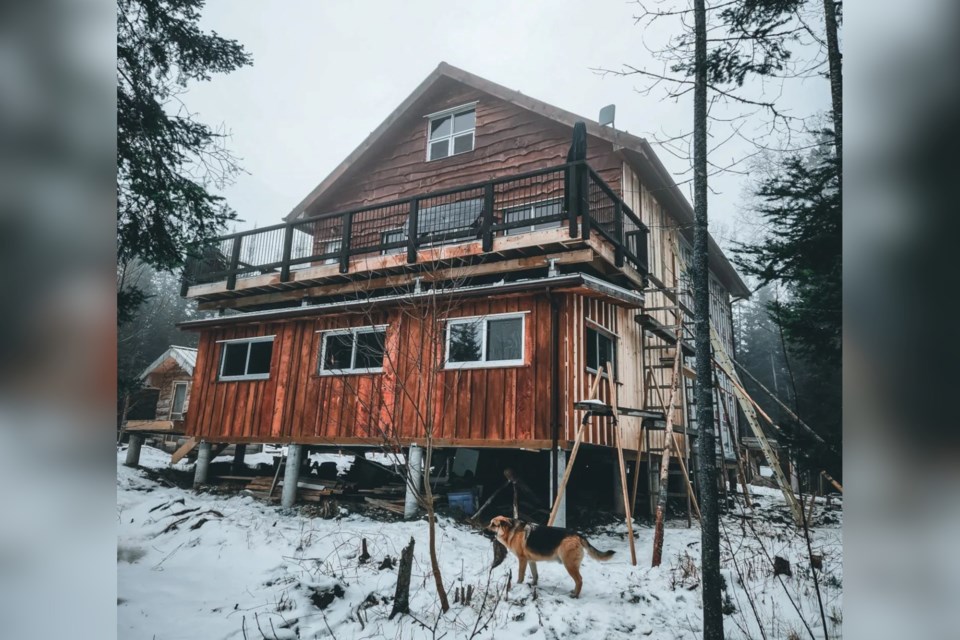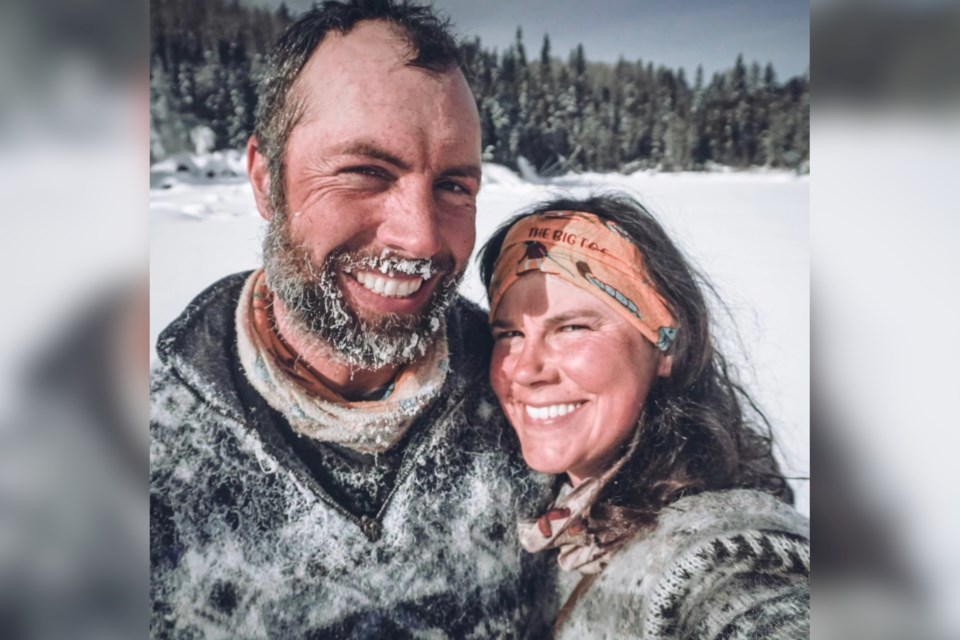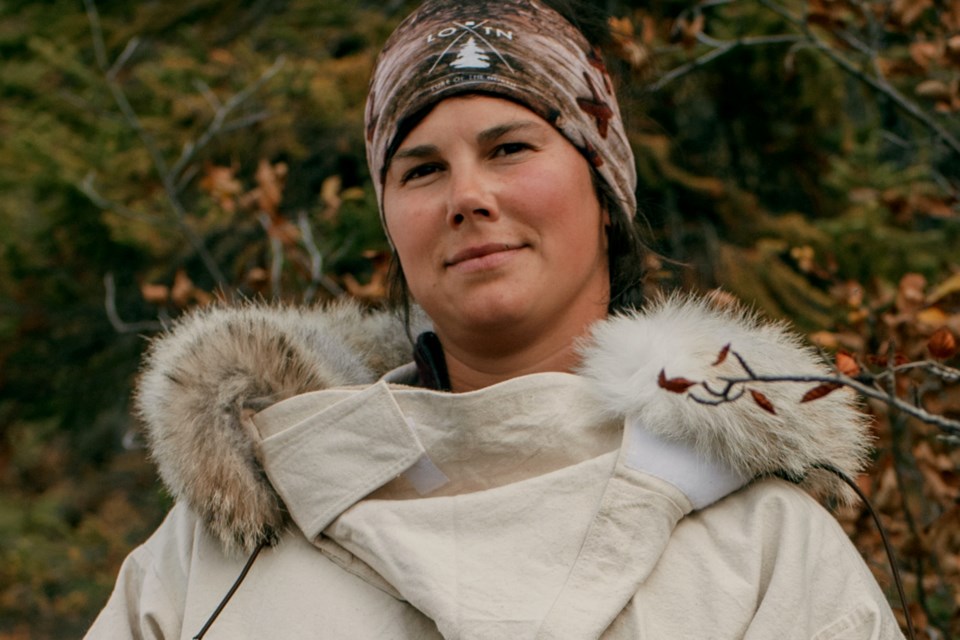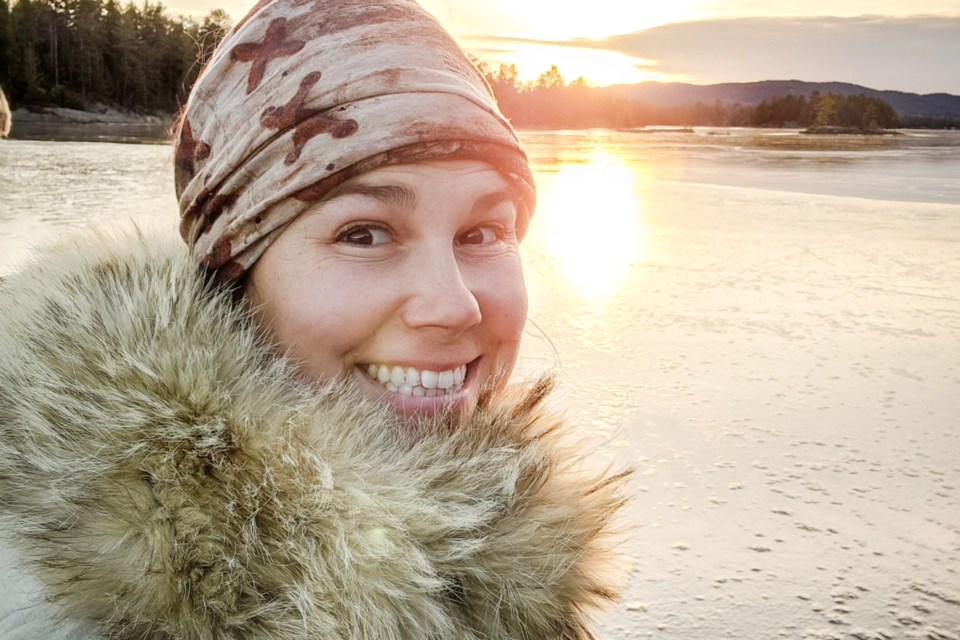Living off-grid on 40 acres of land near Espanola is a dream come true for Kielyn Marrone and her husband, Dave, but it doesn’t mean it has been without its challenges.
Their land is isolated from civilization by approximately 10 kilometres without a road, meaning getting tradespeople to come is cost-prohibitive, leading the pair to become jacks of all trades.
“Dave and I have both become more skilled in a lot of the trades just because of necessity,” Marrone said, noting that between the two of them, they’ve had to learn about electrical wiring, plumbing, mechanics and various other skilled trades.
“We’ve had to become much more self-sufficient.”


The couple have a sign at their house reading “Simple Life,” which they’ve hung ironically.
“People always think that if you live in the bush in a cabin you’re living this beautiful, simple life,” Marrone said. “It is beautiful, but it is absolutely anything but simple.”
The isolation takes some getting used to, living in a cabin in the woods is more expensive than some people might assume, and off-grid living takes a lot of hard work, but Marrone considers it all to have been a worthwhile dream fulfillment.
“I just feel more like myself when I have the time to be in the outdoors,” she said. “I feel more connected to my roots, I’m who I am as a person, I can feel more healthy — my mental and physical health — and I just love the feeling I get when I’m in nature versus in a busy city.”
In cities, it’s easy to be “stuck in the noise without realizing it,” she said, noting that even when you’re in your home, you’re hearing your air conditioner, traffic and all manner of background sound.
“When I go back into the city to visit friends and family, I always yearn to go back into the quiet and simplicity of nature, and hear the leaves rustling and birds singing.”
Marrone grew up in Bradford (between Barrie and Toronto), and enjoyed visiting her grandparents in Parry Sound, where she said she got “a taste for the north.”
Her grandparents had built their own house, her grandmother had a large garden and her grandfather was an accomplished carpenter.
“I definitely drew a lot of inspiration from them later in life,” Marrone said.
A competitive athlete growing up, Marrone’s initial career path was in physiotherapy, but her mindset later shifted toward the love for nature her grandparents helped establish.
She ended up in Laurentian University’s Outdoor Adventure Leadership program, where she met her future husband.
Marrone and Dave opened their own wilderness adventure company, Lure of The North, in 2011, shortly after graduation. The pair bought 40 acres of undeveloped land near Espanola in 2012 and have been working on building up their homestead ever since.
“We jumped in with two feet,” Marrone said.
They spent their first three years living in a tent year-round while they brought their off-grid house to a point they were able to occupy it.
“It’s constant upkeep,” Marrone said, adding that between water, power and heat, there’s always something to be thinking about, which people who live on the grid typically take for granted.
The property started out as “absolutely nothing,” she said, describing the first few years as a stressful undertaking.
“It was 100 per cent worth it, and I’m so happy to have what we have and to have accomplished what we’ve accomplished,” she said. “Now I can really enjoy the fruits of our hard work and labour.”
While building up their homestead and having outdoors adventures on their own, the couple has been sharing their joy of the wilderness with others through their company, Lure of the North, by guiding people on expeditions in Ontario and Northern Quebec.
“I think a lot of people yearn for connection to the outdoors but don’t necessarily have the confidence to grow it on their own,” Marrone said.
“The best part of my job is being able to share in the wonder of Mother Nature and the experience of teamwork and community building and being that safety net for people to take people out into the wilderness and make them feel that connection with nature without the fear of, ‘This is dangerous, or I don’t know if I can do this.’
“One of the main reasons I find people come is to do something physical, because a lot of people’s lives, with their jobs now, are not very physical, and it’s so nice to be able to use your body the way we used to.”

While some people know Marrone through Lure of the North, she’s best known in the broader community through her involvement in Season 7 of the History Channel television series Alone.
The television series lives up to its name, with contestants left alone in the wilderness to survive on their own and film their adventures with a video camera.
Marrone’s adventure took place in Great Slave Lake in 2019. By lasting 80 days in the wilderness, she finished in third place. She dropped out due to starvation.
Throughout her adventure, she trapped 40 rabbits, ate mushrooms, berries and built an A-frame log cabin.
On day 56, she caught a fish, which she described as a highlight of her adventure.
“When I caught this fish and pulled it out of the water, it was a giant floodgate opening of emotion, and that was just me letting that stress release,” she said in a podcast interview, describing the moment as “ecstasy.”
Although her 80-day experience was summed up in only a couple hours of video footage in the television show, Marrone told Sudbury.com that she’s fine with the way she was portrayed.
“I was always (seen) having rollercoaster rides of emotion, and I think that’s fair because I did have that experience,” she said, adding that people have reached out to her to thank her for showing her vulnerable side.
“A woman can be an accomplished outdoors person but also have that femininity and ability to express their emotions and overcome the emotions you have when you’re truly alone and starving.”
With their homestead requiring ongoing work and their business a challenge in itself, Marrone said there’s always plenty for the couple to do. Despite ongoing challenges, she said it’s not a lifestyle either of them plan to give up.
Being close to nature is a reward in itself, and she said it also allows them a unique perspective as to the impacts of climate change.
This is the first winter season they’ve had to cancel their first expedition, which was slated to take place in early January.
Despite a positive start to the season in November, subsequent unseasonably warm temperatures in December brought a “whirlwind of ups and downs,” and the ground won’t be frozen enough to have a proper winter camping experience yet.
“Global warming has been a huge part of our present and future, and it’s just really apparent to me that our impact on the world is making huge changes,” she said.
“It’s really in your face when you’re living out here and relying on the seasonal conditions to be what they normally are.”
The couple plans on picking things back up as soon as they can. As they’ve learned through living in the bush for the past decade, you’ve got to roll with the punches and adapt.
Tyler Clarke is a reporter with Sudbury.com.
